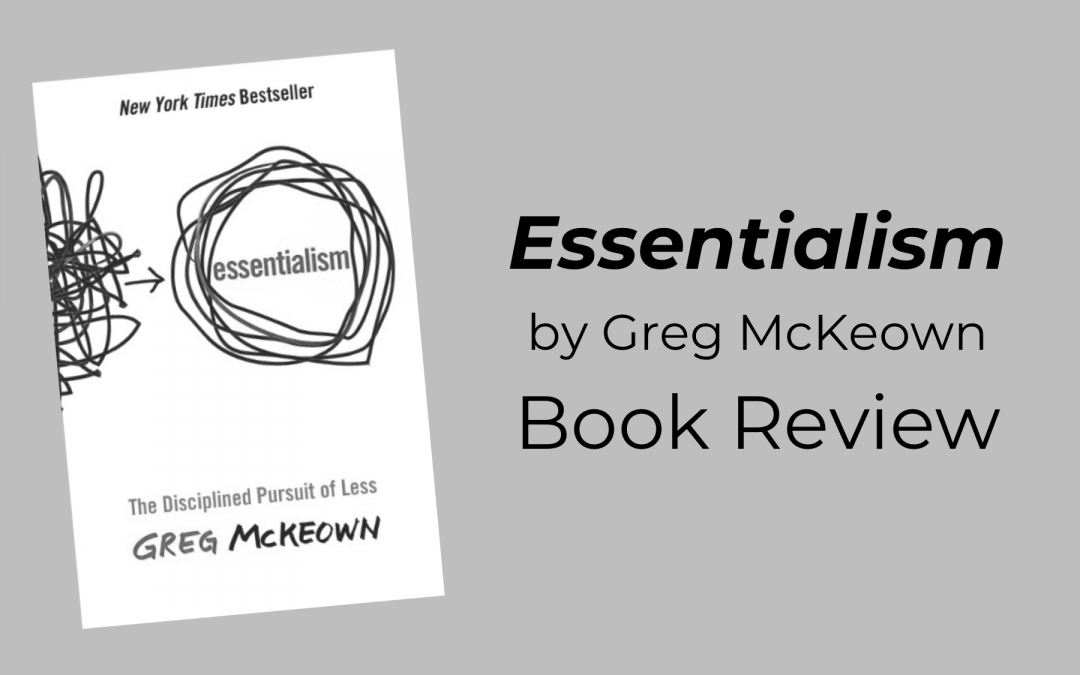I’ve become fascinated by the topic of productivity – it comes up frequently with my leadership coaching clients and in my management consulting. Essentialism, by Greg McKeown, is all about getting more done — and done better — by getting down to the essentials.
Clarity, focus, whatever you call it, Greg McKeown calls it 'Essentialism.' #bookreview #leadership #timemanagement Click To TweetHere are some of his book’s most fascinating points:
Understanding the concept of choice
Selection
Choosing, whether it’s an ice cream flavor, or a strategic direction for a company, shows intent – by selecting one choice, you’re de-selecting others. This intent allows us to focus on a single choice, so you’re not wasting energy by going off in all directions.
Importance
McKeown says that most things aren’t all that important, anyway, and trade-offs are crucial to getting not just the right stuff done, but more of it. It’s as I tell my coaching clients: you can do anything, but you can’t do everything.
Lifestyles of the Essentialist
Limiting your availability
One of the key recommendations of Essentialism is to limit your availability. When you’re not available to everyone for everything, you can be more focused and creative.
Play and sleep
Two counterintuitive parts of the essentialist lifestyle (given habits of overachievers) are play and sleep. Play, exploration, and other non-work activities give our brains the opportunity to make connections they might not during work hours. And sleep is essential to optimal brain function; as McKeown says, “Our highest priority is to protect our ability to prioritize.”
Paring things down
Clarity
To pare things down to their essentials, it’s important to be clear about what you want to accomplish. As the saying goes, if you don’t know where you want to go, it doesn’t matter which road you take. Another great take on clarity is covered in The ONE Thing, by Gary Keller.
Saying “no”
Probably the most uncomfortable (and important) advice in Essentialism is saying “no.” Separating the “no” from your relationship with the person you’re saying “no” to is the key. McKeown also talks about why it’s so hard to say “no,” as well as some graceful ways to do it.
Cutting your losses
Cutting your losses – “uncommitting” to something after you’re already in the process of doing it – can help to whittle things down to the important few, too. McKeown uses the analogy of getting rid of something in your closet by thinking in terms of, “how much would you pay for it if you didn’t own it?”
Act on your essential essentialism
Given all of this, how can we get even better at essentialism?
Preparation & buffering
We can prepare for whatever we’re doing, thoroughly and well (and early). And we can add buffers to our time estimates (people are notoriously bad at estimating how long it will take to complete a task or travel from one place to another.
Habits & routines
Essentialism finds genius in habits and routines. And when we know when during the day we do our best work, we’re more efficient and effective.
Celebration
Another key to great productivity is celebrating small wins along the way rather than “forcing” a big win.
There are so many great ways to do better work well in Essentialism – what’s your favorite? Let us know in the comments below.

